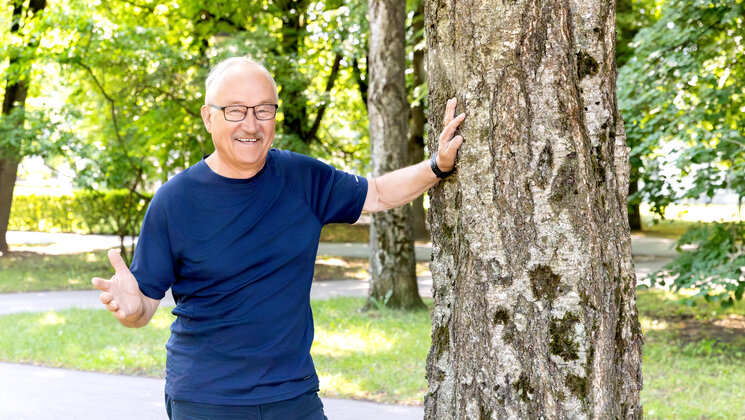-
Faculty of Arts and HumanitiesDean's Office, Faculty of Arts and HumanitiesJakobi 2, r 116-121 51005 Tartu linn, Tartu linn, Tartumaa EST0Institute of History and ArchaeologyJakobi 2 51005 Tartu linn, Tartu linn, Tartumaa EST0Institute of Estonian and General LinguisticsJakobi 2, IV korrus 51005 Tartu linn, Tartu linn, Tartumaa ESTInstitute of Philosophy and SemioticsJakobi 2, III korrus, ruumid 302-337 51005 Tartu linn, Tartu linn, Tartumaa EST0Institute of Cultural ResearchÜlikooli 16 51003 Tartu linn, Tartu linn, Tartumaa EST0Institute of Foreign Languages and CulturesLossi 3 51003 Tartu linn, Tartu linn, Tartumaa EST0School of Theology and Religious StudiesÜlikooli 18 50090 Tartu linn, Tartu linn, Tartumaa EST0Viljandi Culture AcademyPosti 1 71004 Viljandi linn, Viljandimaa EST0Professors emeritus, Faculty of Arts and Humanities0Associate Professors emeritus, Faculty of Arts and Humanities0Faculty of Social SciencesDean's Office, Faculty of Social SciencesLossi 36 51003 Tartu linn, Tartu linn, Tartumaa EST0Institute of EducationJakobi 5 51005 Tartu linn, Tartu linn, Tartumaa EST0Johan Skytte Institute of Political StudiesLossi 36, ruum 301 51003 Tartu linn, Tartu linn, Tartumaa EST0School of Economics and Business AdministrationNarva mnt 18 51009 Tartu linn, Tartu linn, Tartumaa EST0Institute of PsychologyNäituse 2 50409 Tartu linn, Tartu linn, Tartumaa EST0School of LawNäituse 20 - 324 50409 Tartu linn, Tartu linn, Tartumaa EST0Institute of Social StudiesLossi 36 51003 Tartu linn, Tartu linn, Tartumaa EST0Narva CollegeRaekoja plats 2 20307 Narva linn, Ida-Virumaa EST0Pärnu CollegeRingi 35 80012 Pärnu linn, Pärnu linn, Pärnumaa EST0Professors emeritus, Faculty of Social Sciences0associate Professors emeritus, Faculty of Social Sciences0Faculty of MedicineDean's Office, Faculty of MedicineRavila 19 50411 Tartu linn, Tartu linn, Tartumaa ESTInstitute of Biomedicine and Translational MedicineBiomeedikum, Ravila 19 50411 Tartu linn, Tartu linn, Tartumaa ESTInstitute of PharmacyNooruse 1 50411 Tartu linn, Tartu linn, Tartumaa ESTInstitute of DentistryL. Puusepa 1a 50406 Tartu linn, Tartu linn, Tartumaa ESTInstitute of Clinical MedicineL. Puusepa 8 50406 Tartu linn, Tartu linn, Tartumaa ESTInstitute of Family Medicine and Public HealthRavila 19 50411 Tartu linn, Tartu linn, Tartumaa ESTInstitute of Sport Sciences and PhysiotherapyUjula 4 51008 Tartu linn, Tartu linn, Tartumaa ESTprofessors emeritus, Faculty of Medicine0associate Professors emeritus, Faculty of Medicine0Faculty of Science and TechnologyDean's Office, Faculty of Science and TechnologyVanemuise 46 - 208 51003 Tartu linn, Tartu linn, Tartumaa ESTInstitute of Computer ScienceNarva mnt 18 51009 Tartu linn, Tartu linn, Tartumaa ESTInstitute of GenomicsRiia 23b/2 51010 Tartu linn, Tartu linn, Tartumaa ESTEstonian Marine Institute0Institute of PhysicsInstitute of ChemistryRavila 14a 50411 Tartu linn, Tartu linn, Tartumaa ESTInstitute of Mathematics and StatisticsNarva mnt 18 51009 Tartu linn, Tartu linn, Tartumaa EST0Institute of Molecular and Cell BiologyRiia 23, 23b - 134 51010 Tartu linn, Tartu linn, Tartumaa ESTTartu ObservatoryObservatooriumi 1 61602 Tõravere alevik, Nõo vald, Tartumaa EST0Institute of TechnologyNooruse 1 50411 Tartu linn, Tartu linn, Tartumaa ESTInstitute of Ecology and Earth SciencesJ. Liivi tn 2 50409 Tartu linn, Tartu linn, Tartumaa ESTprofessors emeritus, Faculty of Science and Technology0associate Professors emeritus, Faculty of Science and Technology0Area of Academic SecretaryHuman Resources OfficeÜlikooli 18, ruumid 302 ja 304 50090 Tartu linn, Tartu linn, Tartumaa EST0Area of Head of FinanceFinance Office0Area of Director of AdministrationInformation Technology Office0Administrative OfficeÜlikooli 17 (III korrus) 51005 Tartu linn, Tartu linn, Tartumaa EST0Estates Office0Marketing and Communication OfficeÜlikooli 18, ruumid 102, 104, 209, 210 50090 Tartu linn, Tartu linn, Tartumaa EST0Area of Vice Rector for Academic AffairsOffice of Academic AffairsUniversity of Tartu Youth AcademyUppsala 10 51003 Tartu linn, Tartu linn, Tartumaa ESTStudent Union OfficeÜlikooli 18b 51005 Tartu linn, Tartu linn, Tartumaa EST0Centre for Learning and TeachingArea of Vice Rector for ResearchUniversity of Tartu LibraryW. Struve 1 50091 Tartu linn, Tartu linn, Tartumaa ESTGrant OfficeArea of Vice Rector for DevelopmentCentre for Entrepreneurship and InnovationNarva mnt 18 51009 Tartu linn, Tartu linn, Tartumaa EST0University of Tartu Natural History Museum and Botanical GardenVanemuise 46 51003 Tartu linn, Tartu linn, Tartumaa EST0International Cooperation and Protocol Office0University of Tartu MuseumLossi 25 51003 Tartu linn, Tartu linn, Tartumaa EST0Area of RectorRector's Strategy OfficeInternal Audit Office
Doctoral defence: Eerik Jõgi „Development and applications of E. coli immunosensor“
On 25 August at 12:15 Eerik Jõgi will defend his doctoral thesis “Development and applications of E. coli immunosensor” for obtaining the degree of Doctor of Philosophy in Chemistry.
Supervisor:
Associate Professor Toonika Rinken, University of Tartu
Opponent:
Senior Researcher Roman Viter, University of Latvia (Latvia)
Summary
The quality of water is among the major global problems usually associated with drinking water. However, problems with the physical, chemical, and biological pollution of bathing water are increasing. The biological pollution is commonly assessed using microbiology methods by identifying and quantifying microbial indicator organisms.
The most common indicator species for water analysis is Escherichia coli – gram-negative, rodshaped bacteria generally found in the guts of warm-blooded animals. Most E. coli strains are harmless, but there is also a group of E. coli strains, which are human pathogens Uropathogenic E. coli (UPEC) is the main human urinary tract pathogen. The most common method for E. coli enumeration is still microbiological cultivation. This method is reliable and simple, but the analysis time is long, the sensitivity is quite poor and the cultivation requires special lab conditions. In addition, E. coli can be detected with qPCR.
A good alternative for E. coli indication and enumeration are biosensor-based systems, which can provide short analysis time, high specificity, and sensitivity. Biosensors also offer options for automation and on-site analysis required to meet modern requirements for data collection.
The objective of this thesis was the design and production of an E. coli-specific immunosensor, its testing for potential applications in environmental monitoring and clinical laboratory analysis, and validation of the biosensor results. The proposed E. coli immunosensor integrates the use of polyclonal E. coli antibodies for bio-recognition and single-use microcolumn analysis system for the rapid detection of E. coli from bathing water and urine samples. The immunosensor the detection limit was below 10 cells/ml, and the working range was between 10…108 cells/ml.
In urine, there was no inference other bacterial species present in urine to the biosensor signal, as there is a small probability of the presence of dead and/or fragmented E. coli cells in urine. The E. coli biosensor results were in the same range as those obtained with qPCR and cultivation methods.
The analysis of the biosensor signal in bathing water samples revealed that the signal was strongly affected by dead cells, cell fragments, and different coliforms, which are abundant in natural waters. The proportion of cultivable E. coli cells in the immunosensor entire signal was only about 10%. The signal of non-cultivable E. coli cells (measured by qPCR) formed 30% of the immunosensor signal and the majority of the measured signal, 60%, was most likely generated by different forms of coliform bacteria and E. coli cell fragments.
Using renewable, single-use E. coli immunosensor is an excellent alternative to time consuming microbiological and molecular methods for analyzing complex natural samples. These immunosensors can significantly shorten the time required to determine and quantify E. coli. It could be used for automated analyses, as quick identification of E. coli allows to take timely measures to minimize potential health risks.
Doctoral defence: Eerik Jõgi “Development and applications of E. coli immunosensor“

Ülo Mander was elected as member of the Academy of Sciences in global change
Doctoral defence: Celia Teresa Pozo Ramos „Preparation and assessment of antimicrobial electrospun matrices for prospective applications in wound healing”


